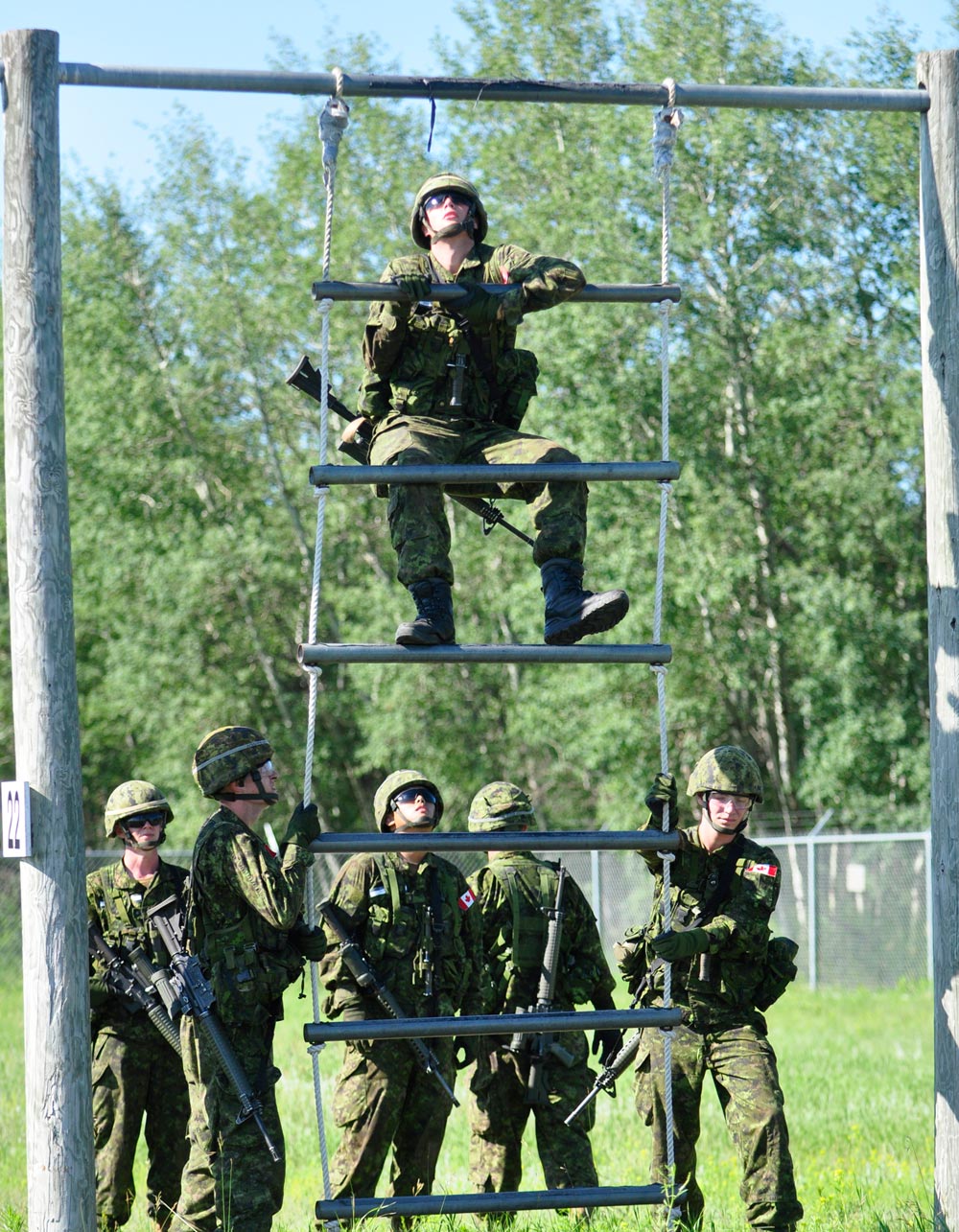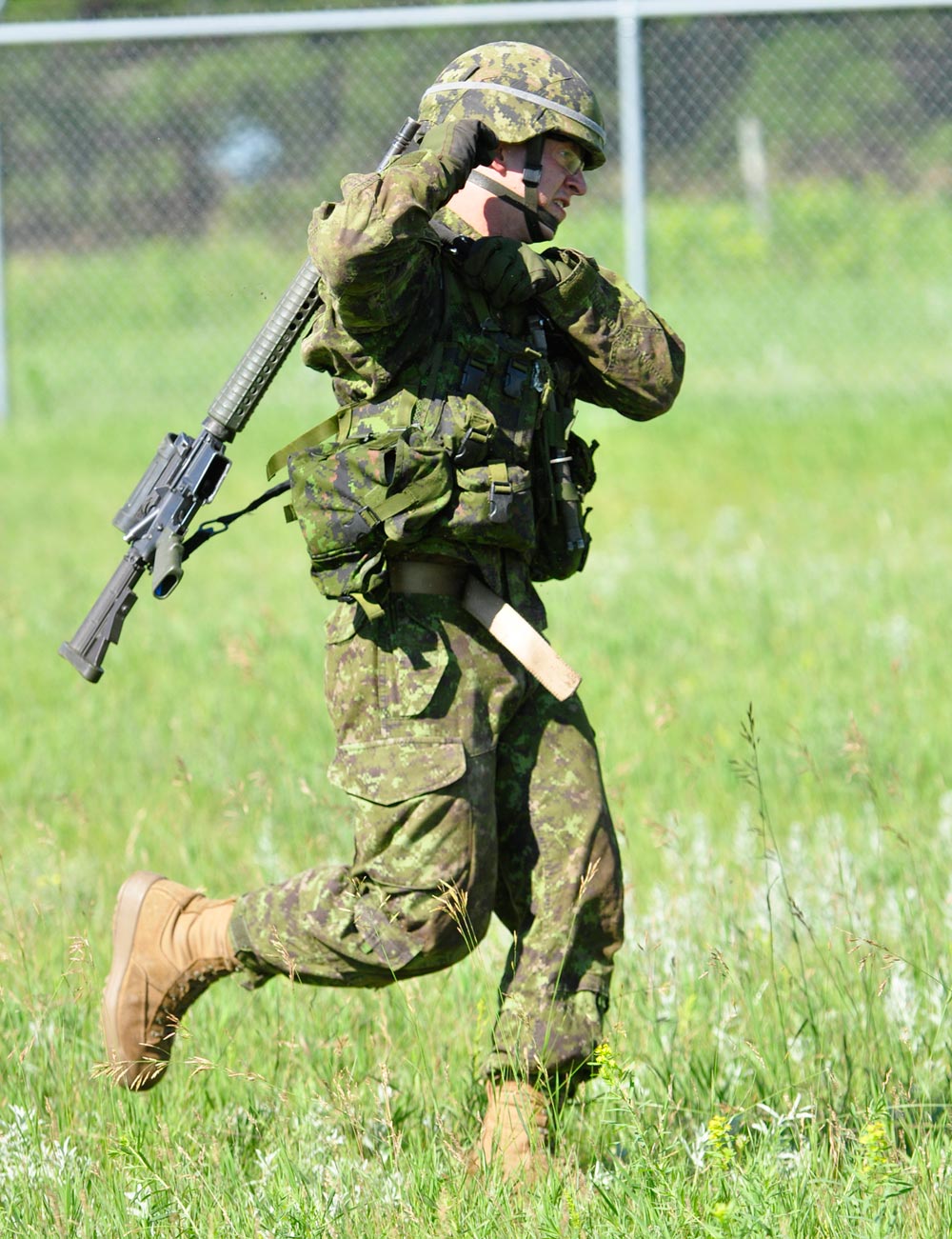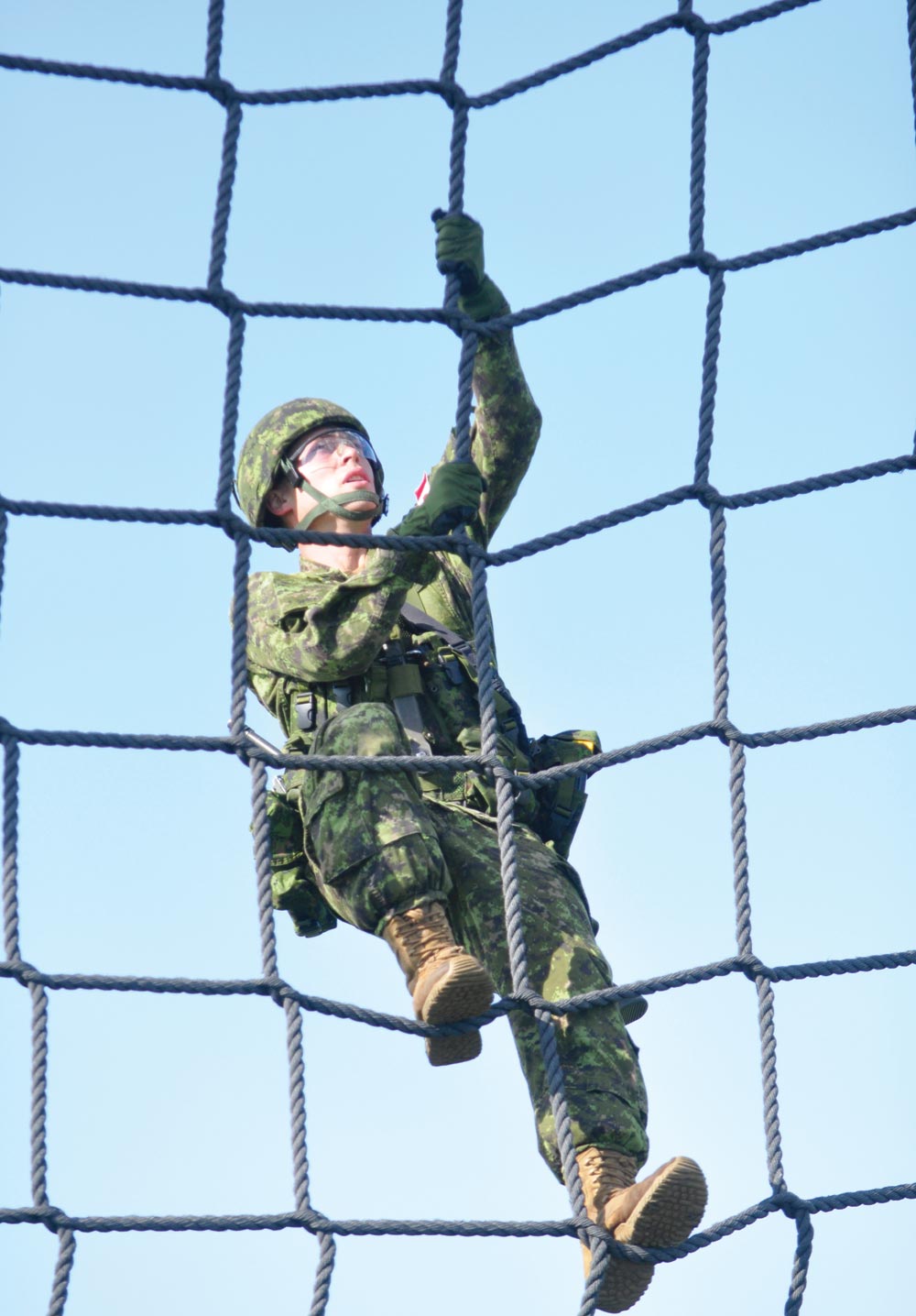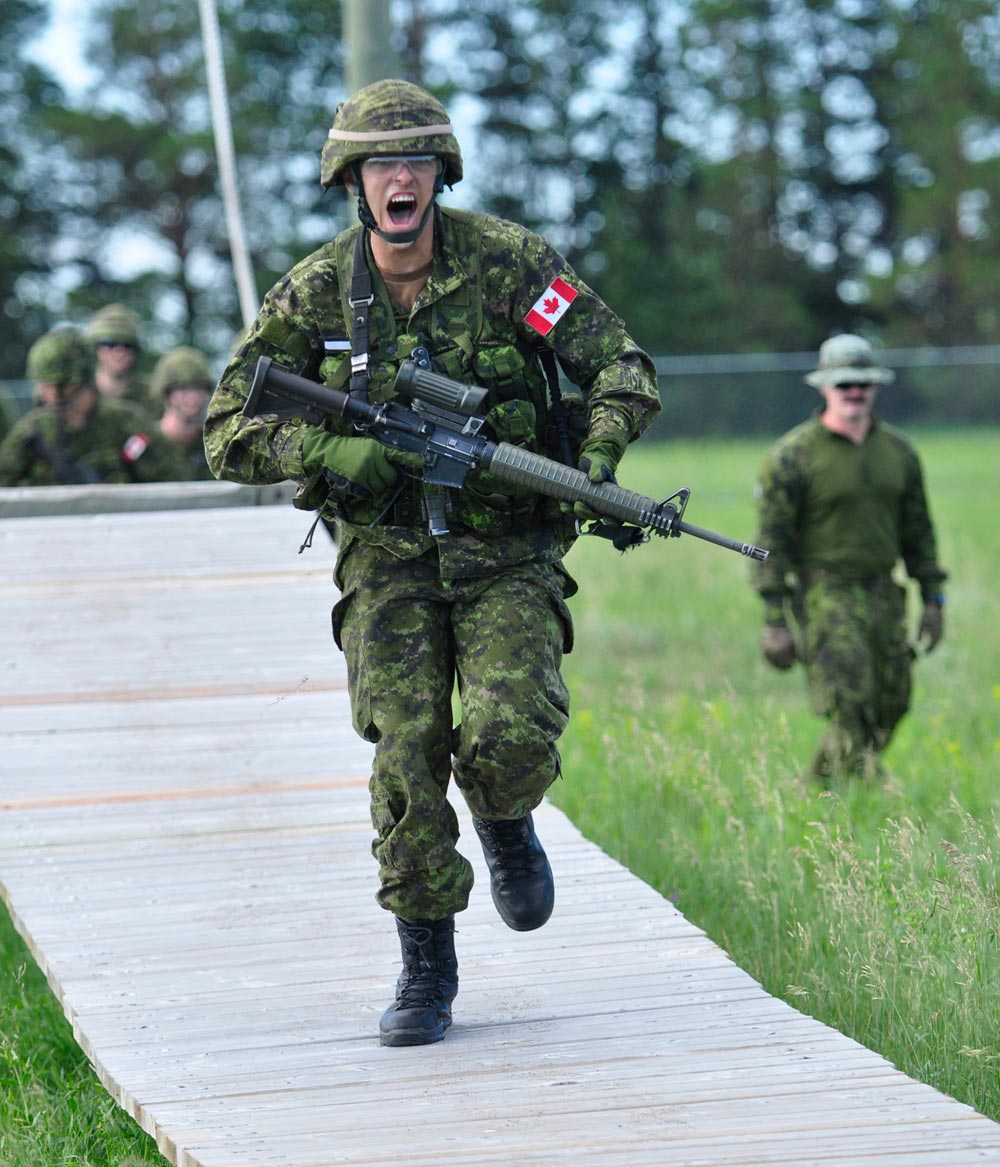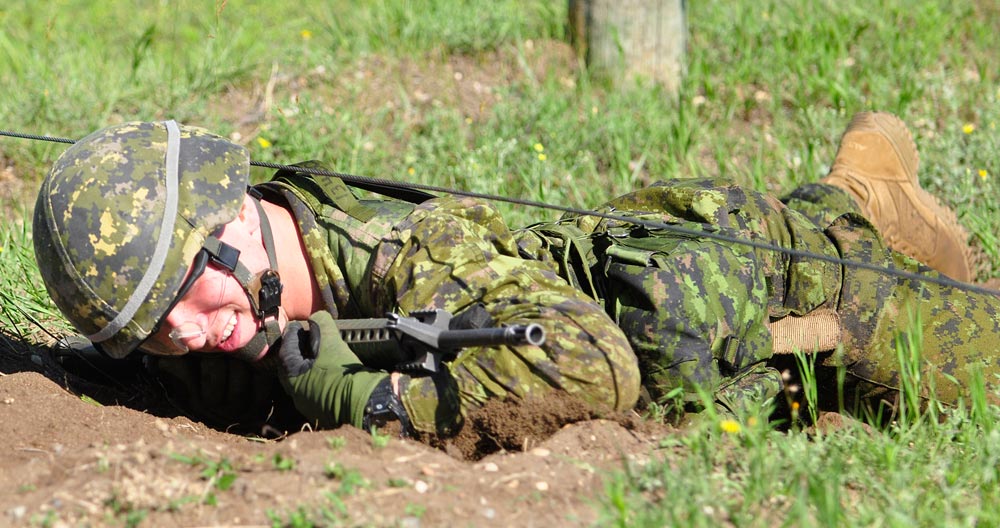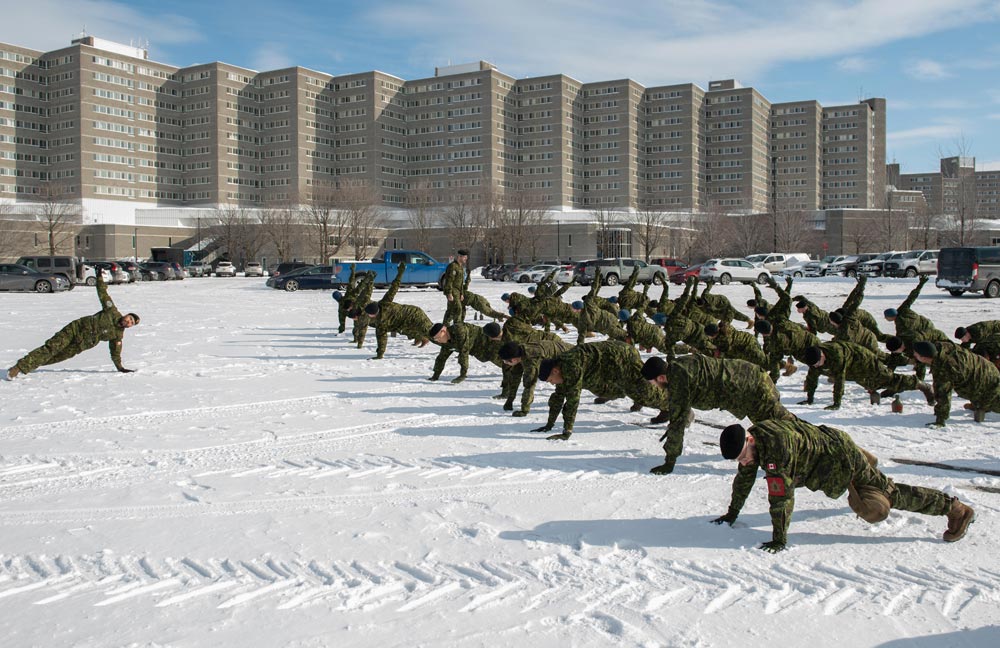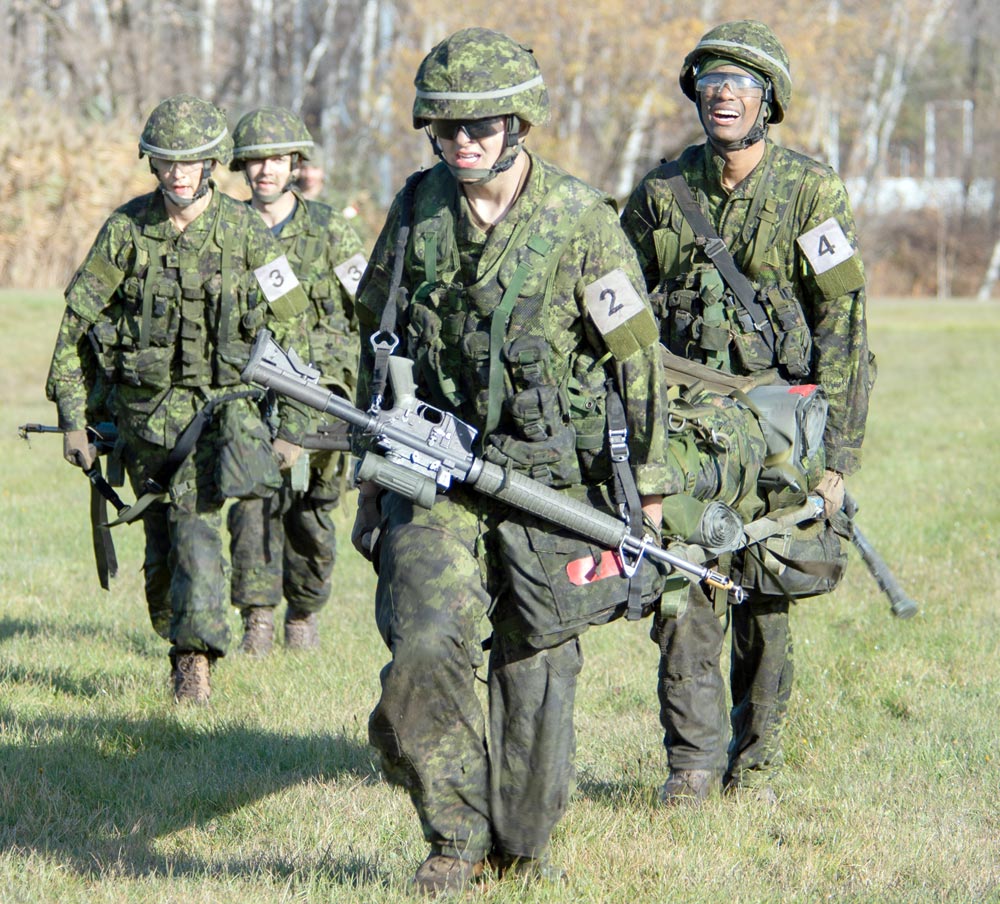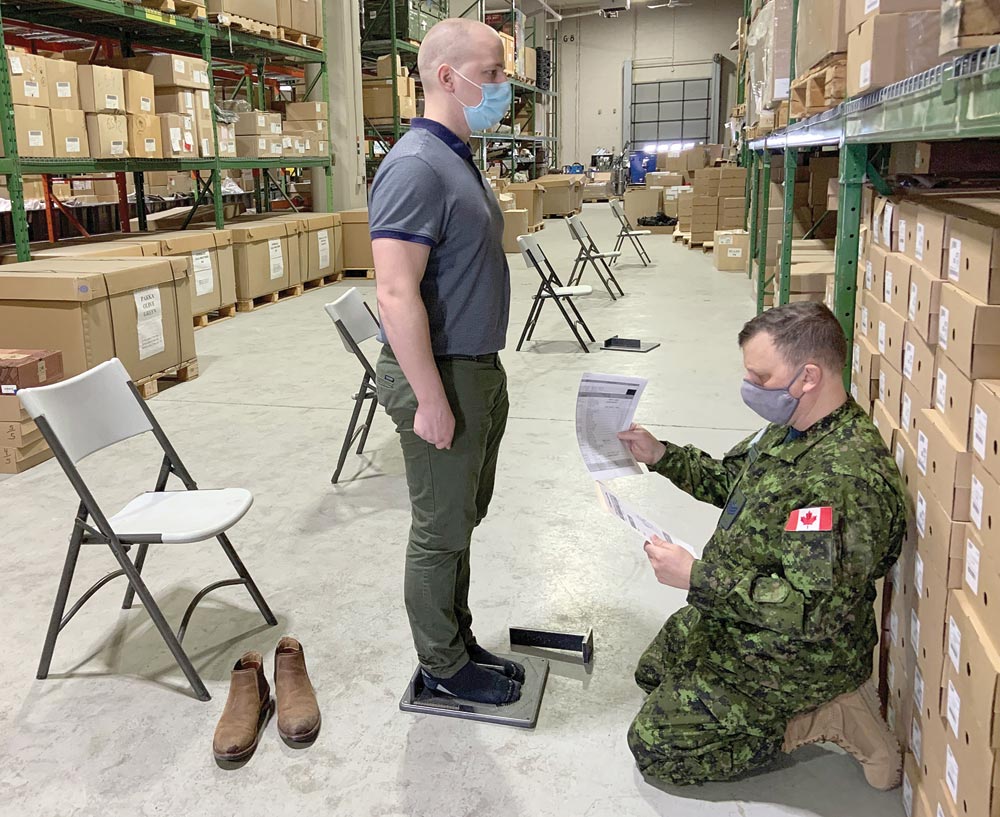

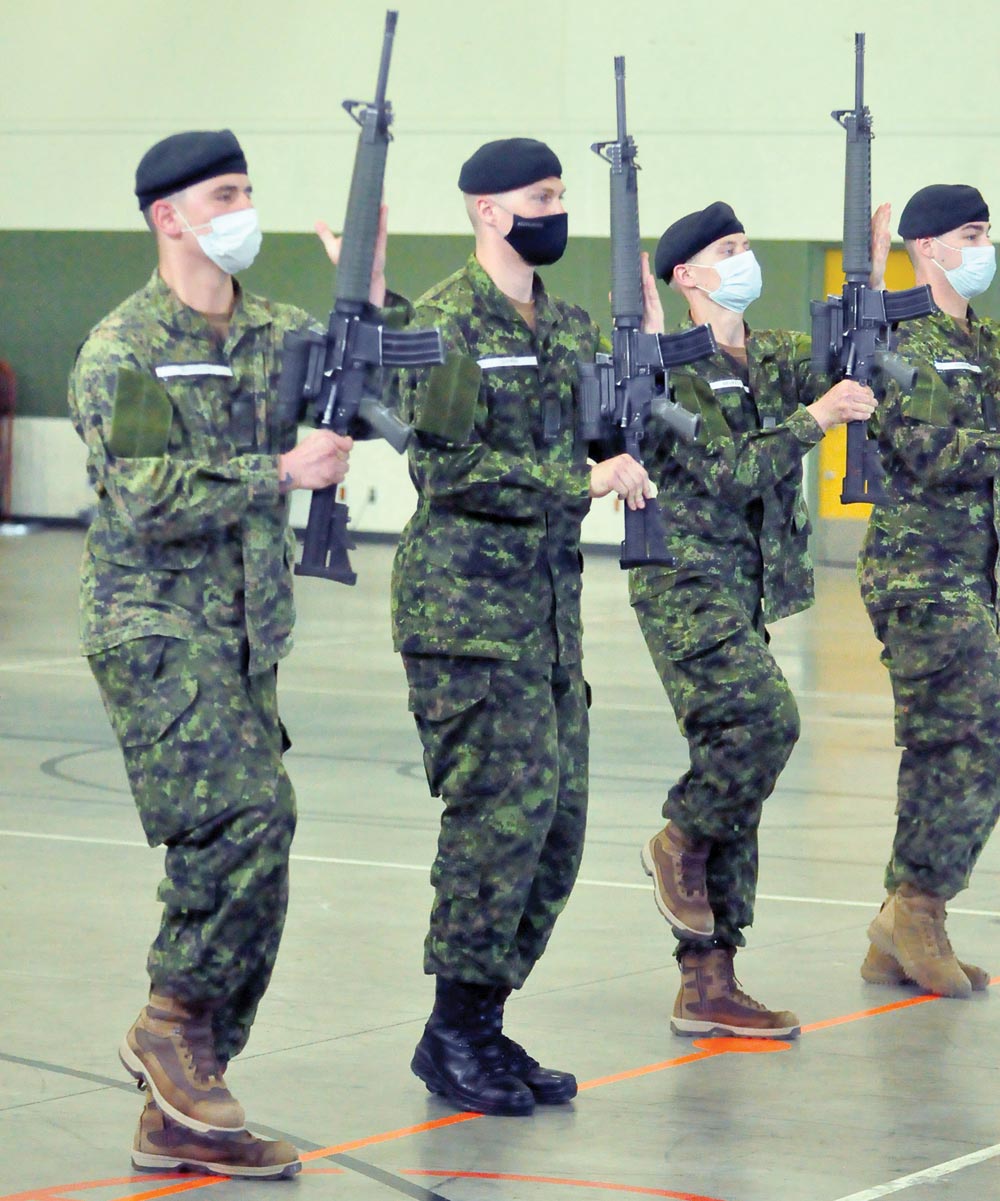
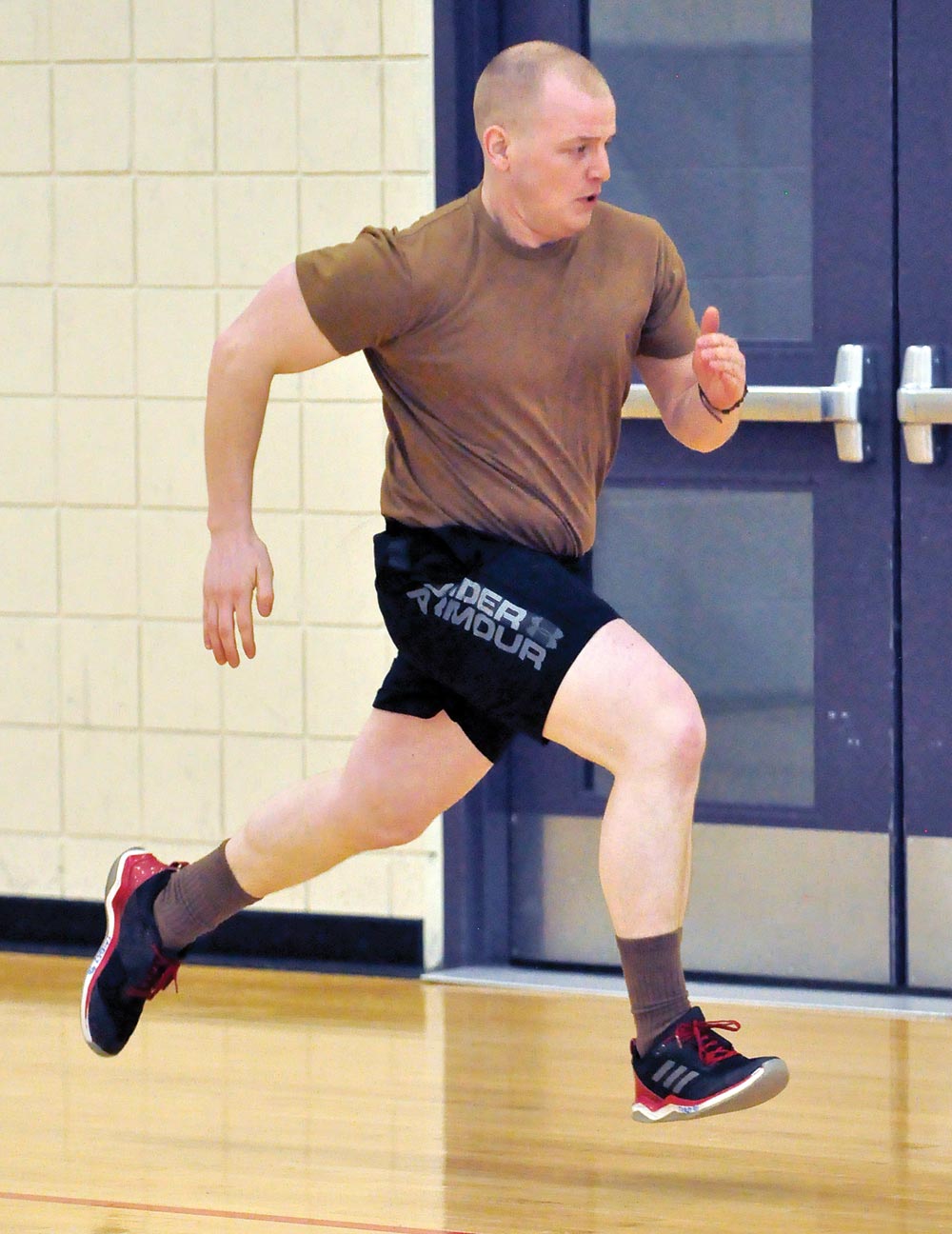
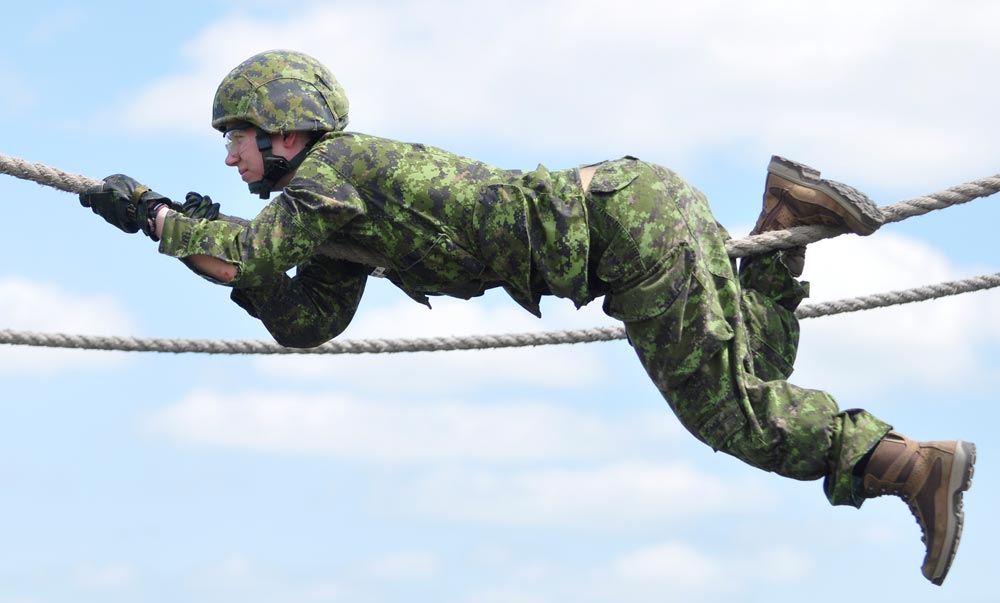
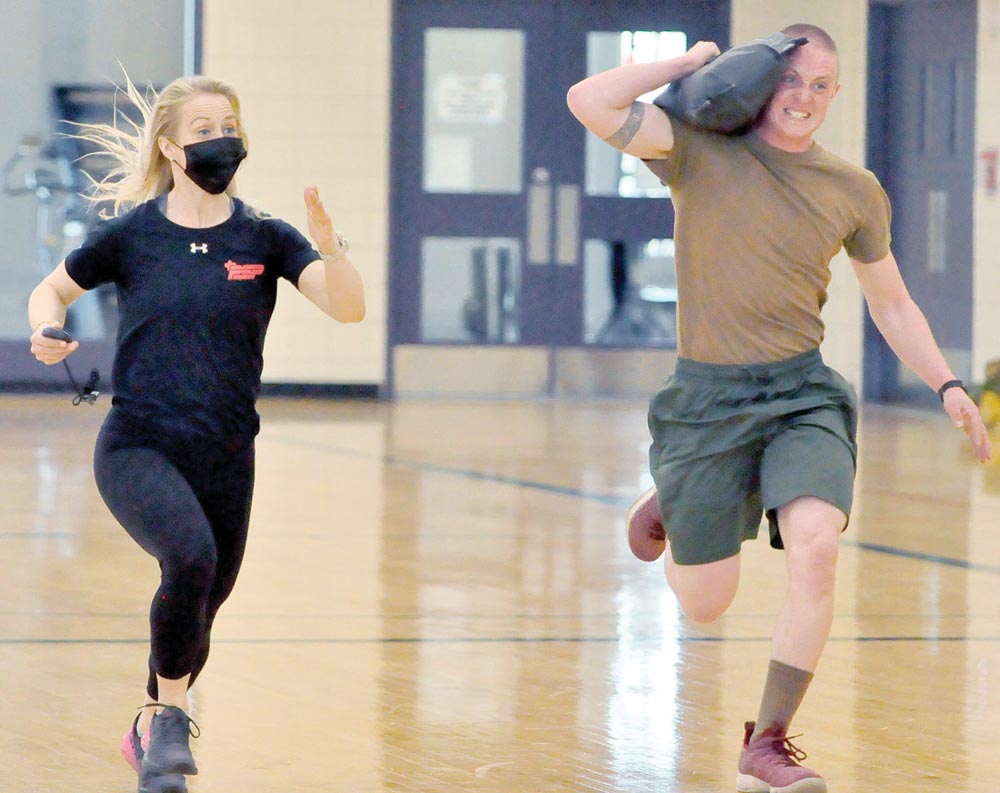
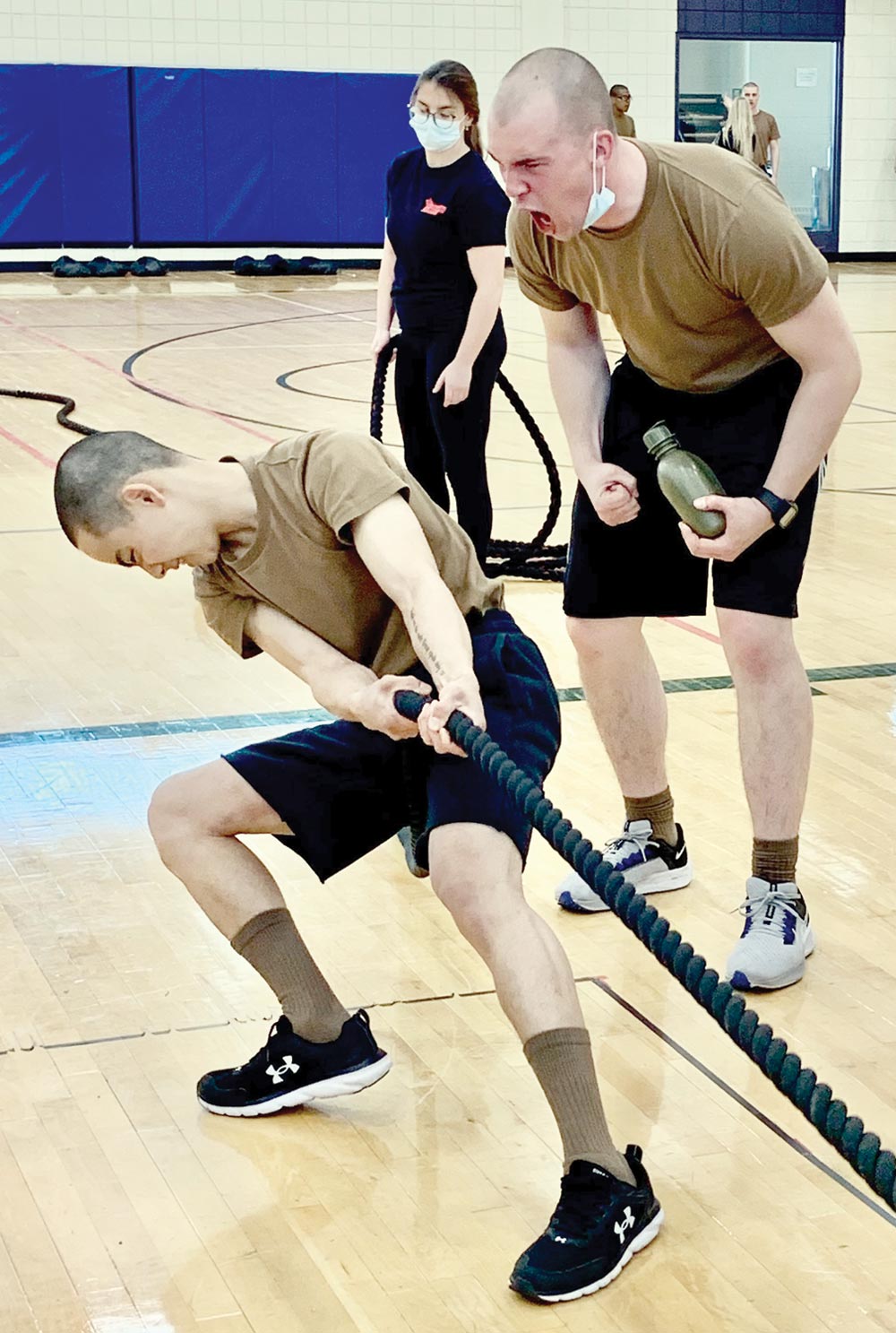
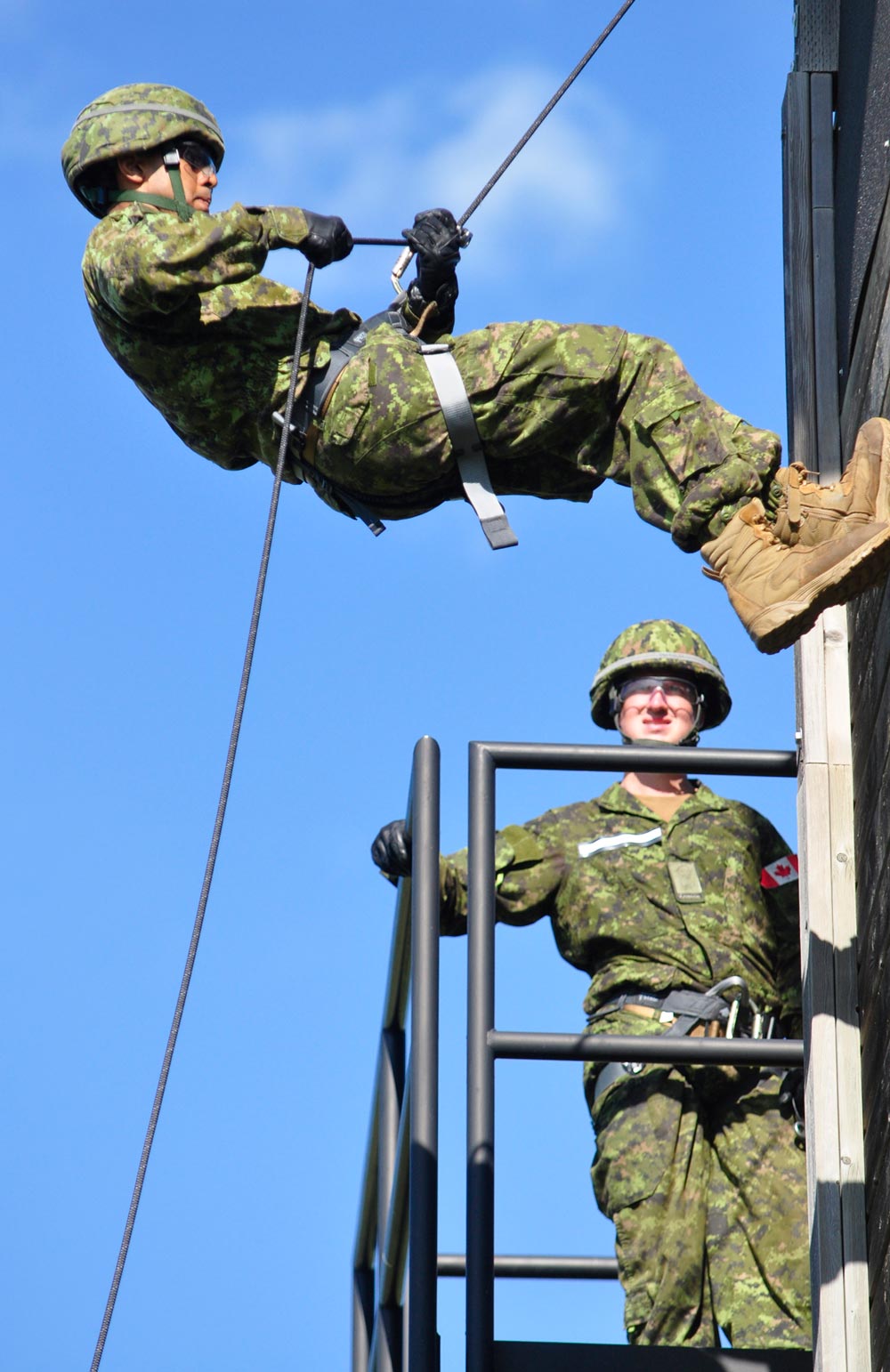
Stag Special
Continuous improvement is key to remaining effective in any type of training environment — Basic Military Qualification (BMQ) is no exception.
In 2021, the Canadian Forces Leadership and Recruit School conducted a review of basic training for the Canadian Armed Forces (CAF). The review sought to align the BMQ more effectively with the updated Non-Commission Member General Specification (NCMGS) policy.
The NCMGS reflects the core behavioural competencies and key tasks for employment of NCMs. Revising BMQ aligns the proposed training with NCMGS, while ensuring the introduction of CAF ethics and values as laid out in Trusted to Serve at the most influential stage of a military member’s career.
The refreshed BMQ course, centered on four pillars, has been optimized and revised to include the essential learning elements required to move through each stage of training.
The eight-week BMQ course applies updated training approaches and technological advancements, which enable candidates to complete the training in a reduced amount of time while simultaneously improving the quality of their learning experience.
• Pillar one: Professional Conduct
This pillar uses the flipped-classroom model, where candidates apply the information from their pre-learning activities to case studies and guided discussions based on real-world scenarios. Candidates explore complex issues under guidance of their instructor, receiving immediate feedback on both positive and negative behaviours demonstrated throughout the course.
• Pillar two: Resiliency
This pillar includes formal training on stress management and resiliency techniques informed by the Road to Mental Readiness and weekly guided discussions where candidates share obstacles and successes experienced on course and strategies to prepare for challenges in the upcoming week. Applying a sports psychology approach, it includes a performance journal with questions to help candidates reflect and recognize factors which contributed to their performance and manage setbacks.
• Pillar three: Physical Fitness
This pillar encourages a healthy lifestyle through daily physical activity while respecting the current fitness level of candidates. Upon arrival, candidates complete an initial fitness screening test based on the FORCE evaluation requirements. Candidates who cannot complete it are removed from training and given a personal fitness training program under the supervision of PSP staff. The course schedule deliberately times the high intensity physical fitness classes and training activities to balance them with low-intensity recovery classes that focus on stretching and mobility.
• Pillar four: Military Skills
The redesigned BMQ course prepares graduates with the entry-level knowledge, skills, resources and strategies to be successful in their next phases of training, while also providing a strong foundation in core military skills, including drill, weapon handling, first aid, chemical/biological/radiological/nuclear techniques, and more.
This reinvigorated and optimized version of basic training will lead the way to military service for a new generation of Canadians who will be dedicated and trusted to serve.
During the COVID-19 pandemic, there were two DBMQ courses run out of 3 Cdn Div TC C Coy Det Shilo, prior to the introduction of this refreshed BMQ course offered to all new recruits at CFB St. Jean, Que. For those moving on to an infantry career, there were DP1 courses offered in western Canada at CFB Shilo or CFB Wainwright.
3 Cdn Div TC C Coy Det Shilo offered two DBMQ courses during the COVID-19 pandemic, so CAF recruits did not have to travel to CFB St. Jean, Que. Photos Jules Xavier/Shilo Stag
• • •
Yves Bélanger
Servir Special
Since April 1, recruits at the Canadian Forces Leadership and Recruit School (CFLRS) complete their Basic Military Qualification (BMQ) in eight weeks.
The Commandant of the institution, LCol Chung Wong, explained this revised and corrected training is much better adapted to the needs of future non-commissioned members and of the Canadian Armed Forces (CAF) needs dictated by the “Non-commissioned members general specification.”
LCol Wong said in 2022, a working group spent several months designing the new training plan.
“Among other things, we took into account the review regarding professional expectations for non-commissioned members and the recent report by Judge Louise Arbour, written following her external and comprehensive review of the Department of National Defence and the CAF.”
Earlier this year, the CFLRS tested its new training plan on three platoons of recruits. The commandant explained the results obtained by these three pilot groups showed the new eight-week training was giving the expected results.
“These three platoons, two Anglophones and one Francophone, allowed us to evaluate our new way of doing things,” he said. “We were very happy to observe the benefits on the candidates.”
In order to achieve the two-week training reduction, the task force reconsidered the need for all of the training hours contained in the previous 10-week BMQ.
“It is by cutting back on the superfluous and using different teaching methods we have succeeded in reducing the number of weeks without affecting the quality of our training.”
For example, some hours spent on basic drill were found to be less useful because they involved drills used less frequently on CAF parades.
“So, we focused on the basics knowing if our soldiers are ever called upon to perform other more advanced exercises, they will learn them at that time,” he explained.
LCol Wong said the team responsible for reviewing the new BMQ also took into account the study of injuries to training candidates carried out by a team from PSP. Thus, the periods dedicated to physical conditioning have been reviewed and modified.
“Our control groups were subjected to more robust but shorter training sessions. We have also distributed them differently so that they do not follow each other. The candidates therefore had time to recover between sessions,” he said. “This had a very positive impact within the three groups. We found that there were very few injuries to candidates in these platoons.”
The new QMB is now based on four fundamental pillars: professional conduct and culture, resilience, physical conditioning, as well as basic military techniques.
A new approach has been prioritized for teaching professional driving.
“For example, rather than giving theoretical lectures on misconduct, we go there with a more interactive approach,” he explained. “The day before the course, candidates receive a presentation on the subject. The next day, there is a group discussion where each candidate is asked to talk about their experience. It’s much more efficient that way.”
Positive reinforcement is put forward more to candidates, according to LCol Wong.
“If they make a mistake, they don’t just have consequences. We are looking with them at how they could have done otherwise to avoid this.”
What about the training of future officers? LCol Wong mentioned the training of Officer Cadets and Naval Cadets will also be reviewed in the coming months.
“A working group is due to start looking into the subject at the end of April. The four pillars of the BMQ will be kept and a fifth will be added concerning leadership potential. However, it is still too early to know if the 12-week training will be shortened.”
Recruits workout at the gym in their issued sports kit or outside in CADPAT, when they are not fully kitted with C7 and afterwards going on rigorous training exercises. Photos CFLRS supplied
